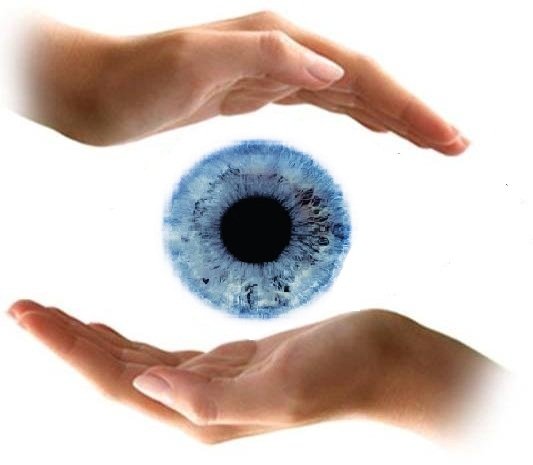All Categories
Featured
Prolonged direct exposure to ultraviolet (UV) rays can lead to numerous eye conditions, some of which may result in permanent damages or vision loss. Whether you're outdoors on a sunny coastline or taking a stroll on a cloudy day, recognizing just how UV rays impact your eyes and learning just how to protect them is important for maintaining healthy vision.
What Are UV Rays and Just How Do They Impact the Eyes? UV rays are a form of unnoticeable radiation emitted by the sun. There are three types of UV rays:
UVA Rays: These permeate deeply right into the skin and eyes, adding to lasting damage. UVB Rays: These are extra extreme and can create surface-level damage, such as sunburn or corneal damage. UVC Rays: These are one of the most unsafe but are absorbed by the Planet's atmosphere and seldom pose a direct hazard. Both UVA and UVB rays can harm different components of the eye, including the cornea, lens, and retina.
Short-Term Results of UV Direct Exposure. Also a short period of extreme UV direct exposure can hurt your eyes. A common condition arising from this is photokeratitis, often called "sunburn of the eye." Signs include:
Unpleasant or red eyes. Sensitivity to light. Extreme tearing. Short-term fuzzy vision. Photokeratitis is generally short-term yet acts as a reminder of the prompt risks of UV radiation.
Long-Term Effects of UV Exposure. Advancing UV exposure gradually can lead to several serious eye problems, including:

Cataracts: UV rays speed up the development of cataracts, a problem where the lens of the eye becomes gloomy, causing vision disability. Cataracts are a leading reason of blindness worldwide.
Macular Degeneration: The macula, a component of the retina in charge of main vision, can be harmed by extended UV direct exposure, enhancing the risk of age-related macular deterioration (AMD)
Pterygium: Often called "internet user's eye," this problem includes a growth of cells on the white component of the eye, which can cross the cornea and hinder vision.
Pinguecula: UV exposure can cause yellow-colored areas to base on the conjunctiva, bring about inflammation and pain.
Skin Cancer Cells Around the Eyes: The fragile skin surrounding the eyes is highly prone to UV radiation, enhancing the danger of basic and squamous cell cancer.
Safeguarding Your Eyes from UV Damage. The good news is that shielding your eyes from UV radiation is straightforward and efficient. Right here are some important suggestions:
Use UV-Blocking Sunglasses. Pick sunglasses that obstruct 100% of UVA and UVB rays. Try to find labels suggesting "UV 400" protection. Wrap-around designs supply extra coverage, avoiding UV rays from going into from the sides.
Use a Wide-Brimmed Hat. A hat with a broad border can block nearly 50% of UV rays, using additional protection for your eyes and the fragile skin around them.
Prevent Height Sun Hours. UV rays are strongest in between 10 a.m. and 4 p.m. Minimize your outside direct exposure during these hours, or guarantee you're effectively protected if you require to be outdoors.
Secure Your Eyes Year-Round. UV rays exist year-round, also on over cast or snowy days. Snow, sand, and water can mirror UV rays, heightening their impacts. Make sunglasses a component of your daily regimen, no matter the period.
Take Into Consideration UV-Blocking Get In Touch With Lenses. Lots of contact lenses now offer UV security, which can be an extra secure when paired with sunglasses.
Urge Eye Security for Children. Kid's eyes are extra vulnerable to UV damage due to the fact that their lenses are clearer, permitting even more UV light to get to the retina. Ensure they wear sunglasses and hats when playing outdoors.
Set Up Normal Eye Exams. Normal sees to an eye care specialist are crucial for monitoring your eye health. An eye doctor can detect early indications of UV-related damage and advise services, such as prescription sunglasses or UV-blocking glasses customized to your needs.
Conclusion. UV rays might be undetectable, but their influence on your eye health is extremely real. Bear in mind, your eyes are one of your most useful possessions-- take the needed actions to protect them from hazardous UV rays today.
Latest Posts
Recognizing Roof Warranties: What Homeowners Must Know
Explore Cut Costs on Car Maintenance with Montclare Auto Repair’s Exclusive Deals
Selecting the Right Roofing System Shade: Influence On Power Efficiency
More
Latest Posts
Recognizing Roof Warranties: What Homeowners Must Know
Explore Cut Costs on Car Maintenance with Montclare Auto Repair’s Exclusive Deals
Selecting the Right Roofing System Shade: Influence On Power Efficiency